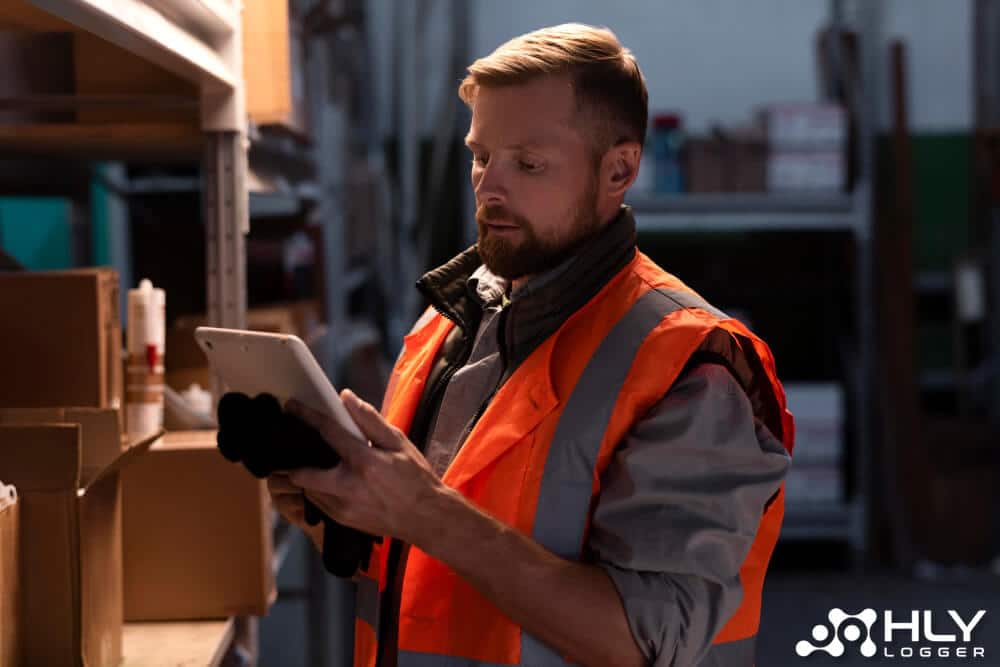Today’s traditional supply chain is no longer sufficient to alleviate the shipping burdens. Traditional logistics delivery is often slow and frequently encounters obstacles that take time to resolve. We are now in the era of smart logistics solutions, which leverage cutting-edge technology to operate more efficiently and with a forward-looking approach.
Many logistics operations utilize radio frequency identification (RFID) to enhance productivity in warehouses and employ sensors to provide valuable data insights that the system can analyze. The advantages of implementing smart logistics solutions apply to any market niche.
Numerous companies now specialize in handling sensitive products that can be damaged or deteriorate over time. Items such as medicines, vaccines, fresh food, fresh meat, chemicals, and other pharmaceutical products can easily compromise if their surrounding temperatures deviate from the required range. Therefore, it is essential to exercise extra care during the storage and delivery processes to end users or consumers.
In cold chain logistics, relying on smart solutions helps maintain product quality, ensuring it meets initial claims. Smart logistics solutions enable rapid and efficient delivery of products to consumers while ensuring safety and high quality. In the event of an unexpected incident that damages some products, the quantity affect is typically very small.
Contents
Smart Logistics Solutions Supporting Technology
Efficiency is what smart logistics solutions aim to provide in order to create a better environment. Technologies such as artificial intelligence, digital sensors, and the leading Industrial Internet of Things (IIoT) support smart logistics. Other key technologies that rely on smart logistics include routers, antennas, micro trackers, and additional services like cloud computing. Smart logistics also utilizes technologies such as blockchain to optimize warehouse processes.
The implementation of these technologies and automated systems in logistics will ensure maximum and sustainable operational results, completely transforming warehouse applications.
The market for Internet of Things (IoT) technology in smart logistics solutions is projected to grow by 13.2% per year until 2030. Many business and technology experts predict this growth, considering the impact of big data as well.
The turnover for companies that utilize smart logistics solutions will continue to increase significantly. Smart logistics solutions provide essential stages to improve process control, reduce operational costs, collect data accurately, and optimize warehouse production results. After collecting substantial data, the technology system analyzes it to provide comprehensive information to logistics managers about warehouse conditions before decisions are made.
To enhance speed and certainty, it is crucial for business owners to replace manual systems with smart logistics solutions immediately. All handling equipment is automated to perform repetitive tasks such as moving goods, entering units, unloading units, and processing orders.
Additionally, a warehouse management system, utilizing software, can help optimize operations, one benefit being a reduction in the risk of errors. Warehousing must also comply with strict security requirements and undergo constant monitoring, all of which can be significantly facilitated by smart solutions.
Improving Operational Efficiency and Effectiveness with Smart Logistics Solutions
The application of smart logistics solutions across various industries has revealed that advanced technology can significantly enhance operational efficiency and effectiveness. While some methods for improving efficiency have existed in traditional logistics, smart logistics perfects these approaches through the integration of new technology.
GPS Tracking
GPS tracking is essential in smart logistics solutions, as it allows for better control of delivery fleets and optimization of delivery routes. With the latest specialized sensors, GPS tracking can enhance customer service by identifying the fastest and most effective routes, thereby reducing the likelihood of lost or delayed goods. Additionally, automating the supply chain process optimizes operational efficiency by minimizing transit times.
Good Relationships with Suppliers
Finding a trusted supplier with over five years of experience is crucial. Such suppliers can help you identify superior products, strengthening the relationship between your company and its suppliers. This can improve inventory control and reduce safety stock levels.
The Importance of Employee Collaboration
Companies must actively guide employees to participate in relevant training programs that align with smart logistics technologies. Encouraging collaboration and facilitating information sharing among employees is essential. Once they master the smart logistics program, it’s important to recognize their achievements with appropriate rewards.
Furthermore, fostering a positive workplace culture is vital for achieving efficient and effective operations. This culture should include valuing the abilities of all colleagues, maintaining discipline with time, and encouraging continuous learning to enhance skills, even when using advanced technology.
Periodic Process Evaluation
Companies implementing smart logistics solutions must regularly evaluate their processes to ensure ongoing efficiency. Employees involved in logistics projects should be well-trained in using various tools, such as data loggers.
HLY Technology Co., Ltd. can assist you in facilitating the use of data loggers and other products that are easy to implement and can deliver optimal results for your business. Since 2011, we have introduced various types of data loggers for smart logistics solutions to numerous clients, continually innovating to transform your understanding of today’s logistics solutions.


